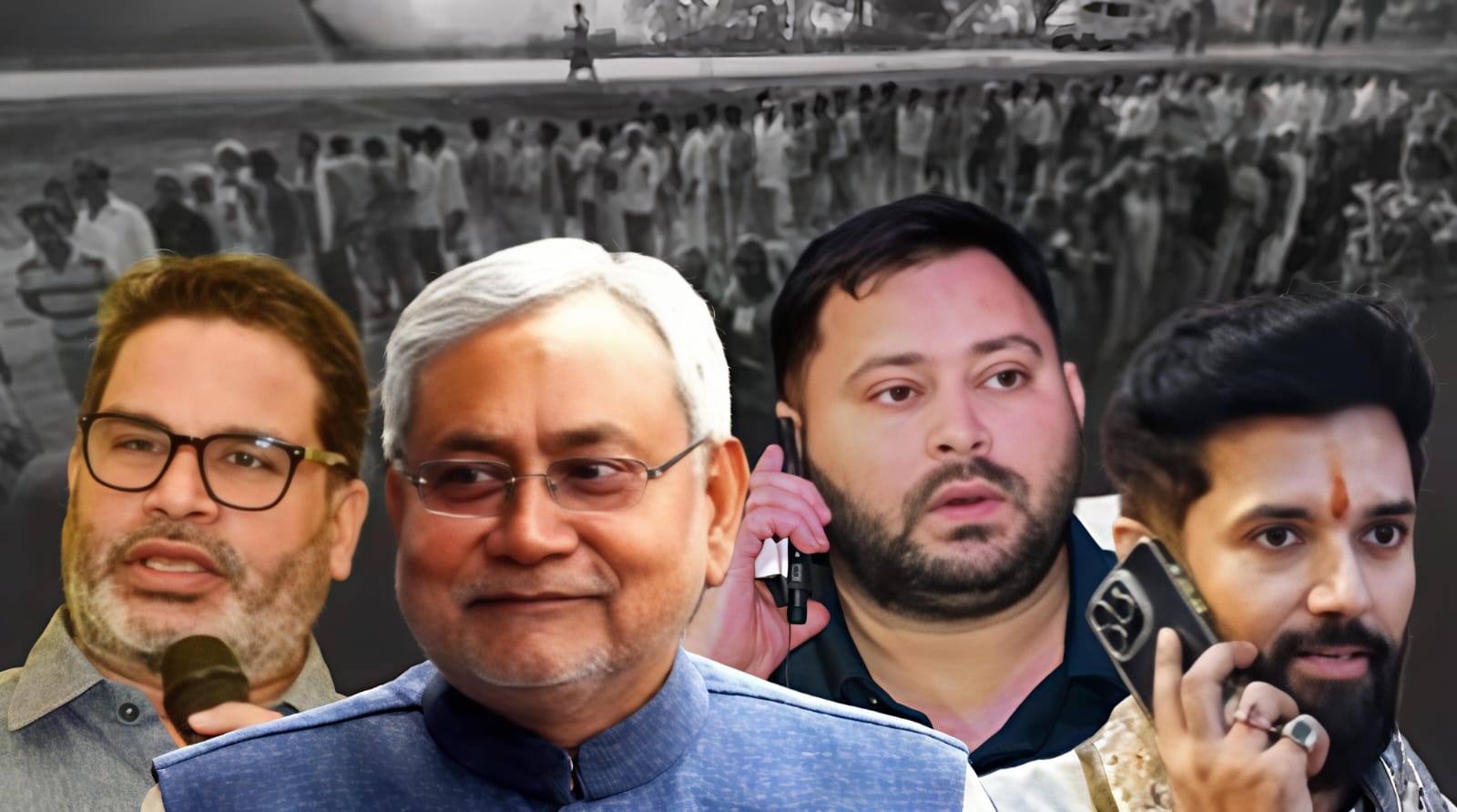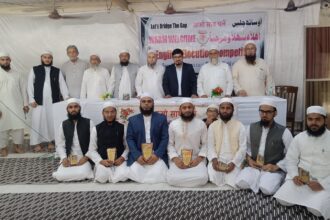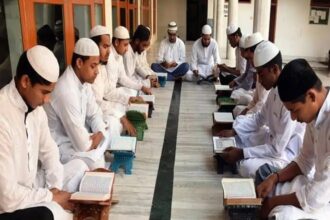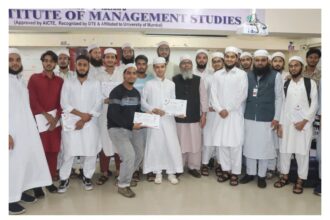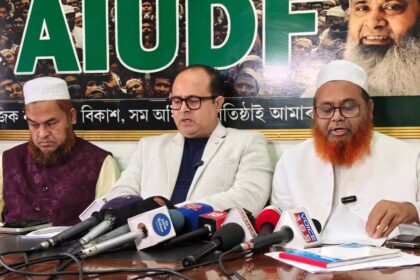Bihar’s Muslim Electorate Must Avoid the Previous Blunder
By: M. Burhanuddin Qasmi
Editor, Eastern Crescent – Mumbai
Every genuine democracy functions purely on numbers. India is the largest democracy in the world. It is the numerical strength of voters that determines who will rule and who will lead the legislatures — whether in the Parliament, State Assemblies, or local bodies. In this system, every vote counts, and every community’s decision carries consequences. Bihar, one of India’s most politically aware states, has often been a testing ground for national political trends.
The 2020 Bihar Assembly election was a case in point — a high-voltage contest marked by shifting loyalties, charged emotions, and razor-thin margins. For much of the campaign and through pre-poll surveys, it appeared that the RJD–Congress alliance, led by Tejashwi Yadav and Rahul Gandhi, was headed for victory. Early trends on counting day reaffirmed this expectation, and enthusiasm spread among supporters across Bihar and whole of India. Yet, as the day wore on, the tide turned dramatically. By late afternoon, the BJP-led NDA had edged ahead and eventually claimed victory — defying nearly all predictions.
A closer, post-result analysis revealed multiple factors behind this unexpected outcome. The NDA’s disciplined management, strategic seat distribution, and clever geographic calculations — grounded in Bihar’s complex social and religious arithmetic — played a decisive role. Its cadre-level planning and bureaucratic grip ensured that even small leads held by the RJD–Congress alliance were neutralized during the final rounds of counting.

In contrast, the RJD–Congress camp appeared overconfident. Many of their local candidates failed to monitor counting-day developments with vigilance, leaving gaps that their opponents exploited. Another significant factor was Asaduddin Owaisi’s AIMIM. The party directly contested in Muslim-majority constituencies, especially in the Seemanchal region, splitting Muslim votes that could have otherwise consolidated behind the RJD–Congress alliance. While AIMIM won only a handful of seats, its impact extended far beyond — turning at least 20 constituencies into triangular contests, weakening secular candidates, and indirectly benefiting the BJP-led alliance.
Five years have passed since then. Nitish Kumar has now become Bihar’s longest-serving Chief Minister. Meanwhile, the communal polarization of Indian politics has reached alarming levels. The BJP-led NDA has pushed India toward a dangerously divided social landscape, where unity and pluralism — the very essence of our nation — stand at risk.
The upcoming Bihar Assembly election offers a critical opportunity to reverse this trend. Bihar’s electorate, particularly its Muslim voters, holds the power to initiate change by voting wisely and strategically. Yet, the early signs are worrying. The political atmosphere is once again charged with emotional slogans, overconfidence among secular fronts, and tactical confusion among voters. RJD–Congress campaigns are gaining media attention, while the NDA quietly strengthens its groundwork, reaching voters door-to-door with calculated precision. Meanwhile, Owaisi’s social media fan base, with its emotionally charged rhetoric, threatens to muddy the political waters once more.
It is important to recognize that the BJP has mastered the art of winning from behind. Gujarat, Rajasthan, Haryana, and even Delhi have demonstrated this pattern — where the BJP was troubled in pre-poll surveys but surged to victory through last-minute ground mobilization. However, it is equally important to note that the BJP is not invincible. West Bengal stands as a clear example. There, Muslim voters avoided the trap of emotional politics. They voted with foresight and unity — and the result was a decisive setback for the BJP’s communal narrative.
Bihar’s Muslim electorate must learn from Bengal’s example. The real question before them is not whether they can elect a few loud representatives to shout in the Assembly, tear apart bills, or make fiery speeches in the name of “Muslim representation.” The question is whether they can help form a stable government that ensures protection of Waqf properties, guarantees social justice, and upholds their dignity and fundamental rights as Indian citizens.
Emotional politics may offer temporary satisfaction and individual benefits but seldom delivers real change. Legislative strength is measured not by decibels in the Assembly or TV channel debates but by the capacity to influence laws and implement government policies. It is better to have a government committed to secular governance than a few symbolic representatives who thrive on community sentiments but fail to make structural impact.
Bihar, like the rest of India, stands at a historical juncture. The stakes are higher than ever. The growing tide of communal politics, joblessness, and erosion of public institutions demands a mature, united response. If the Muslim electorate repeats the mistakes of 2020 — splitting votes between secular fronts and AIMIM — the result will once again favour the BJP-led NDA. The consequences would go far beyond the political sphere — they would shape the social and cultural fabric of Bihar and India for years to come.
Interestingly, while Bihar prepares for its state election, New York is gearing up for its mayoral election on November 4, 2025. Among the front-runners is Indian-origin politician Zohran Mamdani, who may become the first Muslim Mayor of New York. His popularity does not stem from communal appeal; rather, it arises from his inclusive leadership. He has established himself as a representative of all New Yorkers — Muslims, non-Muslims, Asians, Africans, Whites, and Blacks alike. His rise is a reminder that genuine leadership in any democracy transcends identity politics.
The same principle applies to India. In a multicultural, multi-religious, and socially diverse democracy, national leadership cannot and should not be built on narrow religious or ethnic identities. It must be broad-based, inclusive, and rooted in common good. There will always be scope for community-based leadership within cultural, linguistic and certain geographical domains — and that is where figures like Mr. Owaisi can and should play a constructive role. But attempting to reshape national electoral politics through divisive rhetoric serves neither the community nor the country.

As Bihar approaches the 2025 Assembly elections, the responsibility rests squarely with its people — especially its Muslim electorate. The decision must be made wisely, before the votes are cast on November 6. The question is simple yet profound: will Bihar’s Muslims prioritize emotional appeal or political wisdom?
If they choose the latter, Bihar could mark the beginning of a democratic revival — a rejection of hate and division, and a reaffirmation of India’s secular soul. But if they repeat the mistakes of 2020, the outcome is predictable: another NDA victory and another five years of political regret.

